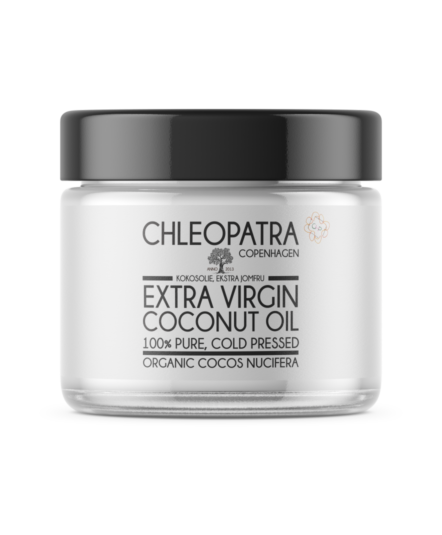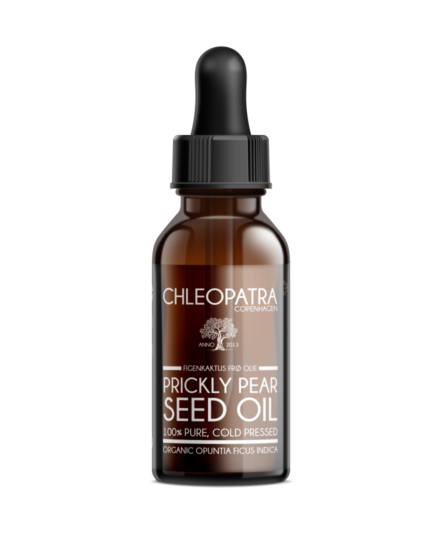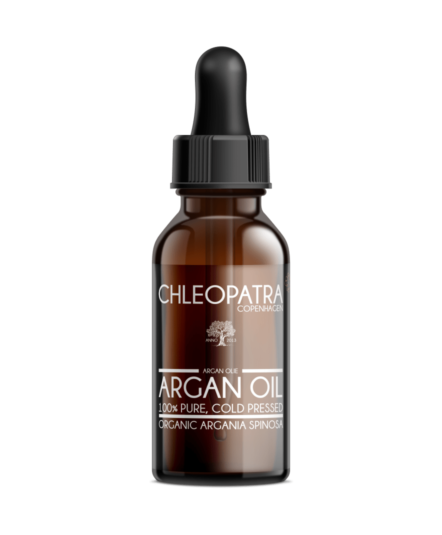Phe problem of dry skin is usually most prevalent in autumn and winter, but we all experience dry skin from time to time.
This is especially true of the lips, but often the scalp, face, elbows and indeed most of the body can sometimes wish for something more hydrating for the body.
What is the cause? The best remedies? And what can you do to prevent the phenomenon? Read this article to find out how to achieve healthy, well-hydrated skin.
[lepopup slug='optin skin problems']- The ultimate remedy for dry skin
- Fact box
- What is dry skin?
- Why do you get dry skin?
- What is the best remedy for dry skin?
- specific areas of the body
- Dry skin on the face
- Dry skin on elbows
- Dry skin on your hands
- Dry skin on legs
- Dry skin on heels and feet
- Dry skin on babies
- Avoid dry skin
- Winter skin - Avoid winter skin dryness
The ultimate remedy for dry skin
You only need one product to avoid looking like a dry orange due to dry skin. The question is, which one?
We all experience it and almost no one, regardless of age, can say no to it. Every now and then, we get dry skin somewhere on our body.
Often the problem can be greatest if autumn and in winter, when the wind and weather change. This is when the weather gets colder and the wind becomes harsher, especially for skin that is exposed to the outdoors.
It also seems that our bodies dry out more with age - the older we get, the more our skin dries out. It's not entirely a lie either. You can read more about why in this article, where we also take an in-depth look at which product works best in the fight against dry skin.
You don't need to fill your body with all kinds of products with chemicals and preservatives to avoid looking like a dry apple.
Fact box
The Danish population experiences suffering from many different skin problems. Among them are dry skin, probably one of the most common skin irritations.
- Dry skin is a common condition that can cause small flakes and dry patches of skin
- Itchy skin is a very common symptom of dry skin
- The problem of dry skin can often seem more extreme during the colder winter months
- Older people are more prone to dry skin than younger people
- Dry skin is more common in people who have allergies, eczema, psoriasis or asthma
- Extreme dry skin can cause cracks and fissures in the skin
- In addition, persistent dry skin can contribute to infections
- Certain medication products can contribute to dry skin

What is dry skin?
Most people have experienced that somewhere on their body, the skin feels so dry that you can almost scratch the entire skin off if you brush it. Conversely, some will also experience rough and calloused skin as a result of dry skin.
Dry skin is considered a skin condition and not necessarily a skin disease. The condition is characterised by scaly, possibly red, irritated and itchy skin.
Dry skin is most common on the face and hands, as well as on the arms and legs.
Dry skin is quite common, especially in the elderly. It's usually a minor and temporary problem that can sometimes cause discomfort. Your skin needs moisture to stay smooth and soft.
As you get older, your skin doesn't retain moisture as well.
Your skin can become dry and rough as it loses its water content and natural oil.
Block "156904" not found
Why do you get dry skin?
Dry skin, also known as xerosis, is caused by moisture being lost in the top layer of your skin. This external layer of skin, called the stratum corneum, is composed of hardened, dry and dead skin cells that act as a protective barrier between the outside world and the underlying layers of your skin.
Xerosis cutis is the medical term for abnormally dry skin. This name is derived from the Greek word "xero", which means dry.
Dry skin is more common during the cold winter months than the rest of the year. That's why it's especially important to moisturise your skin at this time of year.
By changing your daily routine by taking shorter showers with lukewarm water and using moisturisers, you can help prevent xerosis cutis, which is a medical term for dry skin.
What is the best remedy for dry skin?
Since dry skin often occurs as a result of your own protective body oilsebum, for various reasons, is not present in sufficient quantities. The natural first step is to make sure you don't do too much to remove the oil your body uses to protect your skin.
Next, most people choose to use a hand cream or skin cream to moisturise their hands and face.
The problem with many of these creams, however, is that they often contain large amounts of water and preservatives. The water makes the skin retain the moisture it already has, which in such cases is already insufficient. For a moment, the skin will appear moisturised and protective, but in the long run, it will dry out further.
The best protection and therefore the best remedy for dry skin is therefore an oil that most closely resembles the skin's own sebum.
We recommend jojoba oil and macadamia oil, as these two oils are the closest to the skin's own sebum.
Vegetable oils
specific areas of the body
If you have dry skin in specific areas of your body, you may well want an oil that is a better match. For example, there's no point in greasing your entire face with oil if that's the only area where you're experiencing dry skin.
Dry skin on the face
Your face is exposed to harsh weather, blowing wind, rain, sleet, snow and changing temperatures. All this, along with the way we constantly wash ourselves today, causes fine skin to lose its natural protective oil. This is the main cause of dry skin on the face.
At the same time, many people are using harsh facial soaps and cleansers like never before. There are a multitude of products for the face and even though you may have an oily T-zone, your skin still needs moisturisation.
For the face, take it easy and use mild products for the best results.
We recommend you try prickly pear oil
Dry skin on elbows
Elbows tend to be drier than other parts of the body. They are made up of loose skin that wrinkles easily and are exposed to a lot of daily pressure.
Dry skin on the elbows can be caused by a variety of conditions ranging from infections or linked to allergic reactions, dermatitis or other skin conditions.
In general, dry elbows can often be significantly improved by using a good oil for the skin.
We recommend coconut oil
Vegetable oils
Dry skin on your hands
Dry skin on the hands is a common problem, especially on hands that are often exposed to the elements from weather, frequent hand washing and detergent use. When your hands are dry, they can easily become red, irritated and itchy. Your skin can begin to flake, peel or even crack. Fortunately, dry skin can often be treated conveniently and inexpensively with a good oil.
We recommend Marula oil
Vegetable oils
Dry skin on legs
When you shower, you wash away a lot of the good natural oils in your skin. These natural oils not only keep your skin moisturised, they also protect your skin from damage, which can cause even more dryness. In the shower, it's very easy to damage your beds in particular.
You can therefore benefit from using a good oil to moisturise and nourish the skin immediately after you get out of the shower. Dub-dry your body and add a good oil to your body immediately. This will keep your skin fresh and your body well protected.
We recommend coconut oil or a Other oil you think is great for your body oil.
Dry skin on heels and feet
Heels, and feet in general, are easily overlooked when it comes to caring for and looking after our bodies. But that doesn't mean you have to let go of these areas completely.
Some people experience so dry feetThey think it has to hurt like hell before they do something about it - and there's no reason for that. With a good oil, your feet can benefit from the moisturising and nourishing elements just like the rest of your body. Be careful, though, as oils and feet don't mix well with floors...
We recommend that once a week or fortnight you take a foot bath with salty, oil and a delicious aromatic oil. It gives your feet a whole new lease of life and they'll love you for it.
For feet and heels we recommend macadamia oil
Vegetable oils
Dry skin on babies
Babies have much more delicate skin than adults, so they are more susceptible to developing dry skin, rashes and mild skin irritations. Babies are also more vulnerable to losing body heat and moisture quite quickly when exposed to anything from cold, heat or dry air. Using natural moisturisers on the skin is usually a safe and effective way to prevent dry skin in babies. You can benefit from using mild baby oils for this purpose.
However, try to avoid exposing your child to excessively cold, hot or dry air, which can contribute to dry skin. Exposure to air conditioning, air conditioning, salt water and chlorine can all dry the skin. Daily bathing removes the natural oils from the skin, so a moisturiser should used after every bath. Applying moisturiser a few minutes after drying your baby will seal in the moisture from the bath.
We recommend apricot kernel oil
Vegetable oils
Avoid dry skin
Dry skin is linked to a decrease of oil on the surface of the skin. It is usually triggered by environmental factors. The following activities or conditions can cause particularly dry skin:
- Excessive use of skin cleansing or scrubbing the skin too often
- Showering with excessively hot water or if you shower too often
- If you dry yourself too much after bathing
- If you simply live in an area with very low humidity
- If you live in an area that experiences very cold and dry winters
- Being in homes with central heating for longer periods of time
- If you don't drink enough fluids (dehydration)
- If you get too much sun
The skin relies on the sebaceous glands through which it can secrete sebum, the natural oil the body produces. It is therefore important to try to maintain an appropriate level of moisture, as this lubricates and moisturises the outer layers of the skin (epidermis).
Sebum, the skin's own oil, is susceptible to external factors such as bathing and excessive air conditioning. The epidermis is unable to retain moisture, so when the impermeable layer covering the skin is no longer present, the skin begins to dry out.
It is therefore important to moisturise the skin with a good moisturiser and both Jojoba oil and Macadamia oil are both exponentially good for this purpose, simply because both oils are very similar to the skin's own sebum.
But the fact is, one of the most important things when it comes to dry skin is to drink plenty of water.
Winter skin - Avoid winter skin dryness
The Danish weather is oil weather, you might be tempted to say. Winter skin or extremely dry skin definitely needs oil.
When the wind is strong, rain and hail batter your face and the weather is cold, your skin also spends a lot of energy trying to stay strong, moisturised and supple. That's why - especially in Denmark - it's necessary to help your skin stay healthy and moisturised so it doesn't dry out.
And not just in winter, but all year round.
Our bodies have a built-in, natural layer of oil that protects the skin. But the dry weather, along with winter and harsh winds, can quickly change the natural protection the skin possesses. This can quickly lead to winter dry skin, also known as winter skin.
With the weather we often experience here in Denmark, the weather simply sucks the water right out of our bodies. When this happens, we experience dry and sometimes itchy and irritated skin. So, especially in winter, moisturising oils can make the difference between dry, itchy skin and comfortable, smooth and fine skin.
Should you switch to winter skincare in winter?
Yes and no.
Because in principle, you should stick to the moisturiser that works for your skin. You shouldn't change the amount of cream or oil you use. At least not if your skin behaves well in winter.
If your skin doesn't show extra special moisturising needs during the cold winter months (by appearing drier than usual). Then there's no need to boost the amount of oil you apply to your skin.
If you do this without your body specifically trying to signal your body to do so, you will most likely find that your skin becomes more oily, blocking and increasing the risk of more oily, acne-prone skin.
If, on the other hand, your skin is clearly showing signs of needing oil. In other words, if it gets extra dry in the colder months, there may be a good reason to boost the amount of moisturisation as well. But listen to your body before you oversaturate it with hydration.
Here, more is not better. A little usually goes a long way when it comes to oils for the skin.
What to do for dry skin
- If you no longer have dry skin in winter or at certain times of the year, you don't need to make any changes.
- However, if you find that you have drier skin at certain times of the year, such as during the cold winter months, you should apply a little more than you normally would.
Get rid of dry skin
Tips to keep your body moisturised and ready for winter to avoid winter skin and dry skin
Protect your skin when moving outdoors
We don't just mean by SPF-protecting sunscreens. Your skin needs a protective layer to help it keep its moisture barrier intact. Just step outside with a bare face and you'll quickly realise that wind and cold can create small cracks in the skin's surface, leading to redness, dry skin and other damage.
So protect your face and other parts of your body that are exposed to the cold weather with a moisturising oil.
Avoid parched and dry skin with moisturising oils. Soften and moisturise your skin to avoid dry winter skin in the harsh Danish weather - all year round
Use the right soaps
Use rich soaps, but not heavily perfumed soaps. Oily soaps add moisturiser, perfumed soaps wash away the oil and make your skin drier. This only exacerbates your winter skin. Also, liquid soaps are generally more moisturising than regular soaps.
Avoid dry skin on your hands
Hands are always very vulnerable. Firstly, they're in front of you most of the time. Secondly, you use them all the time for all your chores. Secondly, washing your hands several times a day will quickly cause your hands to become more rough and dry.
You can use a mild oil - such as Quickly absorbed by the skin - as an extra hand lotion to avoid dry skin on your hands. But do yourself a favour and make sure you choose a non-greasy oil. This will make your hands greasy, which is not very nice. After all, you want to get back to using your hands as soon as possible.

Think about your body and the environment when showering
Lukewarm, short showers are better than long, hot baths. The heat from a hot bath simply melts away the skin's protective oils and can dry out the skin. This will only make your winter skin worse, which you should avoid. If you already have dry skin, pay extra attention to this.
Use dub-dry after a shower or bath. Vigorous rubbing with a towel leaves the protective oil on the towel instead of the skin.
Apply moisturiser or moisturising oil and massage it into the skin immediately after a shower. This is a good time to moisturise the skin because it can seal in moisture.
Unscented moisturisers are better because the fragrances are added to products along with alcohol, which can dry out the skin.
Oily ointments and oils, including Vaseline, are better than lotions or creams. Vegetable cosmetic oils are made for this purpose in the fight against dry skin.
Your laundry can also make a difference for your winter skin and dry skin
Fragrance-free detergents are better for your skin. Scented products can transfer from clothes to skin and cause dryness. Fabric softeners are also bad because of the fragrances embedded in them.
Most often, these are artificial substances that are not good for anyone. More and more people are also developing allergies to these fragrances. However, it remains to be seen whether they can contribute to dry skin on their own.
Maintain a good humidity level in your home
The cold weather makes us turn on the radiators, put wood in the fireplace and light candles. This contributes to an incredibly dry indoor climate, which in turn dries out the skin completely. It is therefore important to keep the indoor climate well moisturised.
You can do this with wet clothes, for example. Dry freshly washed clothes inside, as this will add moisture indoors.
Of course, common houseplants also help the indoor climate. Ferns are great for creating humidity indoors, but remember that your plants also need water and moisture, so you'll need to remember to water them and moisturise their leaves if necessary.
Leave the bathroom door open after you've showered. The moisture from the bathroom can easily be distributed to the other rooms - it also improves the indoor climate in the bathroom if not all the moisture from the bathroom stays in the same room.
However, be careful not to over-moisturise your home as this can cause other problems. You should only use these tips if your indoor climate is really dry.
Good oils for a moisturising balance in winter to eliminate winter skin and combat dry skin
Argan oil
Argan oil is good for the whole body. It has both healing and moisturising properties and also helps to Minimise stretch marks, scars, wrinkles and fine lines.
Vegetable oils
Jojoba oil
Jojoba oil is also great as a body oil and is usually very good for people with oily skin. Jojoba oil is the oil that most closely resembles the skin's own oil production, sebum.
Both oils can also be used to moisturise and strengthen hair.
Passion fruit oil
Passion fruit oil is ideal for the face. It has a lovely scent and absorbs easily into the skin, moisturising and soothing the skin.
Giant Evening Primrose Oil
Evening primrose oil is also a great and gentle oil for the face. It is rich in GLA (gamma-lenoleic acid) which helps maintain the reproduction of new cells.
Vegetable oils
Conclusion
We all experience dry skin from time to time and will most likely experience it ourselves. It doesn't have to be your entire body that's as bone dry as an autumn leaf gathered for compost.
You may experience dry skin in certain areas of your body, such as your lips, elbows, feet or face. No matter where, there are many ways to both prevent and heal dry and chapped skin on the body.
A good oil that your skin loves is just the thing all year round. By caring for your skin with pure natural oil, you can maintain your skin's elasticity and suppleness. At the same time, you provide your skin with pure vitamins and minerals that help fight free radicals and protect the skin from ageing.
If it's winter or autumn, there's no excuse at all - make sure you try it before your skin starts whining about dryness.
https://www.ncbi.nlm.nih.gov/pmc/articles/PMC4885180/
https://www.healthline.com/health/best-oils-for-your-skin
https://www.health.harvard.edu/staying-healthy/moisturizers-do-they-work
































Recommended natural products for skin, hair and body
Essential Oils
Organic Orange Oil 10 ml Essential Oil - Chleopatra
Skincare kits
Beard oil: Nordik Collection
DKK 436,00Original price was: DKK 436,00.DKK 369,00Current price is: DKK 369,00. (incl. VAT)Vegetable oils
Organic Marula Oil 10ml - Chleopatra
Vegetable oils
Cold Pressed Apple Seed Oil 30ml - Chleopatra
Essential Oils
Organic Ginger Oil 10 ml Essential Oil - Chleopatra
Natural Raw Materials
Vitamin E (Natural) 10 ml
Essential Oils
Organic Cedarwood Oil 10 ml Essential Oil - Chleopatra
Mineral Clay
Moroccan rasul clay 90g